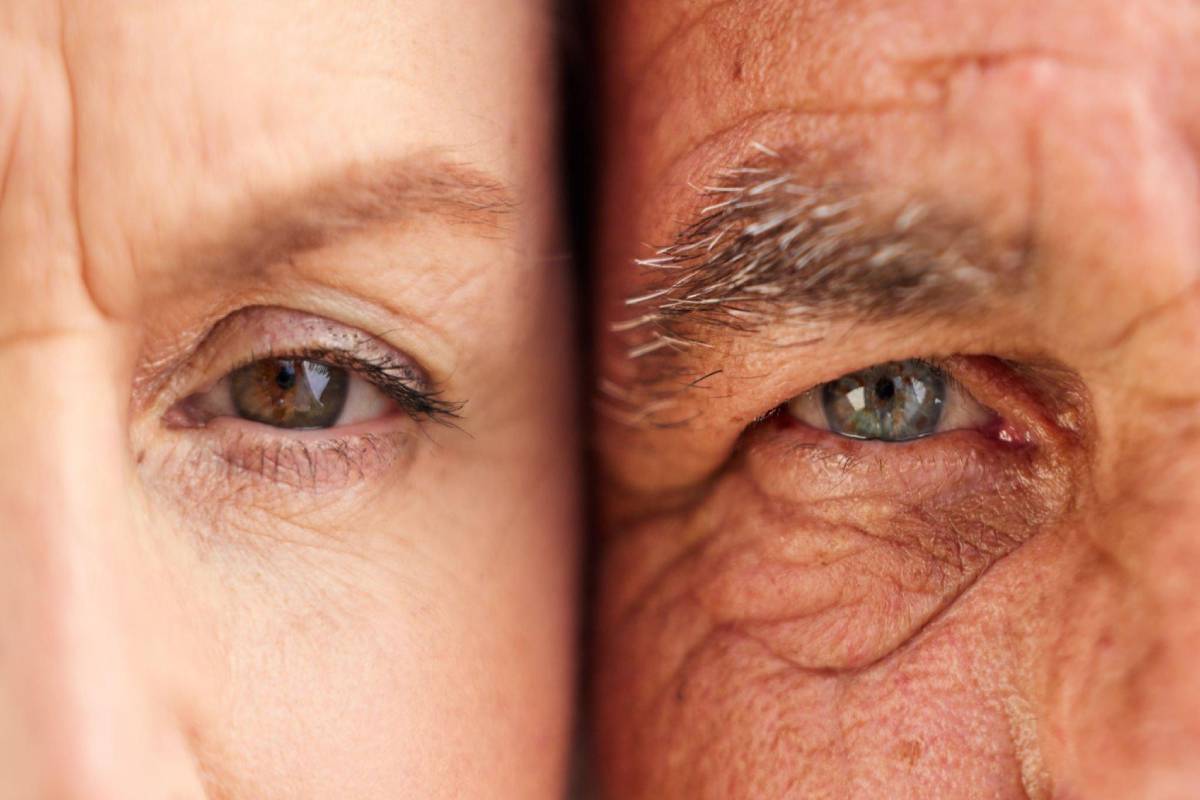As we age, our bodies undergo many changes, including our vision. From difficulty reading small print to developing age-related eye conditions, it’s important to know what to expect and how to maintain good eye health as we grow older. In this blog post, we’ll explore the various changes that occur in our eyes as we age, and provide tips and advice on how to maintain optimal vision health. We’ll also discuss common eye conditions that affect older adults and when it’s necessary to seek professional eye care. Whether you’re in your 40s, 50s, or beyond, this post is for you if you’re interested in learning more about age-related vision changes and how to take care of your eyes as you age.
Table of Contents
Age-Related Vision Changes: What to Expect as You Get Older
As we age, it’s natural for our eyesight to change. Presbyopia, the gradual loss of the eye’s ability to focus on nearby objects, is a common age-related vision change that affects most people in their 40s or 50s. As a result, reading small print or doing close-up work may become more challenging. Another common age-related vision change is a decrease in the amount of light that enters the eye, making it harder to see in low-light conditions. However, there are ways to maintain good eye health as we age, such as eating a healthy diet rich in nutrients that promote eye health, and getting regular eye exams to catch and treat any potential issues early on. By understanding what to expect as we age and taking steps to maintain good eye health, we can continue to enjoy clear vision well into our golden years.
Tips for Maintaining Good Eye Health as You Age
If you’re looking for ways on how to improve vision, maintaining good eye health as you age is a crucial first step. By eating a healthy diet rich in nutrients that promote eye health, staying hydrated, and exercising regularly, you can support your eyes and reduce the risk of developing age-related eye conditions. But there are also other strategies you can try to improve your vision, such as practicing eye exercises and using specialized glasses or lenses. Exploring different techniques can help you see more clearly and maintain good eye health for years to come.
Reducing Digital Eye Strain: Tips and Strategies for Healthy Screen Use
The amount of time we spend looking at screens has increased significantly in recent years, leading to an increase in digital eye strain. Symptoms of digital eye strain can include dry eyes, headaches, blurred vision, and neck and shoulder pain. However, there are steps we can take to reduce the impact of digital eye strain on our vision. One effective strategy is to follow the 20- 20-20 rule, which involves taking a break every 20 minutes to look at something 20 feet away for 20 seconds. This helps to reduce eye fatigue and strain. Additionally, adjusting the brightness and contrast settings on your screen, positioning your screen at the correct distance, and using anti- glare screens or glasses can also help to reduce the strain on your eyes. By incorporating these tips into your screen time routine, you can reduce your risk of developing digital eye strain and maintain good eye health.
Common Eye Conditions that Affect Older Adults
As we age, our eyes become more vulnerable to various eye conditions. Age-related macular degeneration (AMD) is one of the most common eye conditions that affects older adults and can result in vision loss or blindness. Cataracts, which cause the lens of the eye to become cloudy, are another common age-related eye condition that can impact vision. Glaucoma, a group of eye conditions that can cause damage to the optic nerve, is also more common in older adults. Other eye conditions that can affect older adults include diabetic retinopathy, dry eye syndrome, and floaters. By staying informed about these common eye conditions, older adults can be proactive about maintaining their eye health and seeking treatment if necessary. Regular eye exams can also help to detect any potential issues early on, which can be crucial for preserving vision.
When to Seek Professional Eye Care for Age-Related Vision Changes
It’s important to be aware of when to seek professional eye care for age-related vision changes, as some conditions can progress rapidly if left untreated. If you notice sudden changes in your vision, such as seeing flashes of light or experiencing a sudden increase in floaters, it’s important to seek immediate medical attention. Additionally, if you experience sudden or severe eye pain, or have redness, swelling, or discharge from the eye, it’s important to see an eye doctor right away. For more gradual changes, such as difficulty seeing in low-light conditions or experiencing frequent headaches or eye strain, scheduling regular eye exams with an optometrist or ophthalmologist can help to catch any potential issues early on and provide appropriate treatment. By staying vigilant and seeking professional eye care when necessary, you can help to maintain good eye health and preserve your vision as you age.
Conclusion
In conclusion, age-related vision changes are a natural part of the aging process, but it’s important to understand what to expect and how to maintain good eye health as we grow older. By eating a healthy diet, staying hydrated, exercising regularly, and getting regular eye exams, we can reduce the risk of developing age-related eye conditions and preserve our vision. Additionally, by taking steps to reduce digital eye strain when using screens, we can further protect our eyes. It’s crucial to stay informed about common eye conditions that affect older adults and to seek professional eye care when necessary to catch any potential issues early on. By being proactive about our eye health, we can continue to see clearly and enjoy optimal vision for many years to come.

